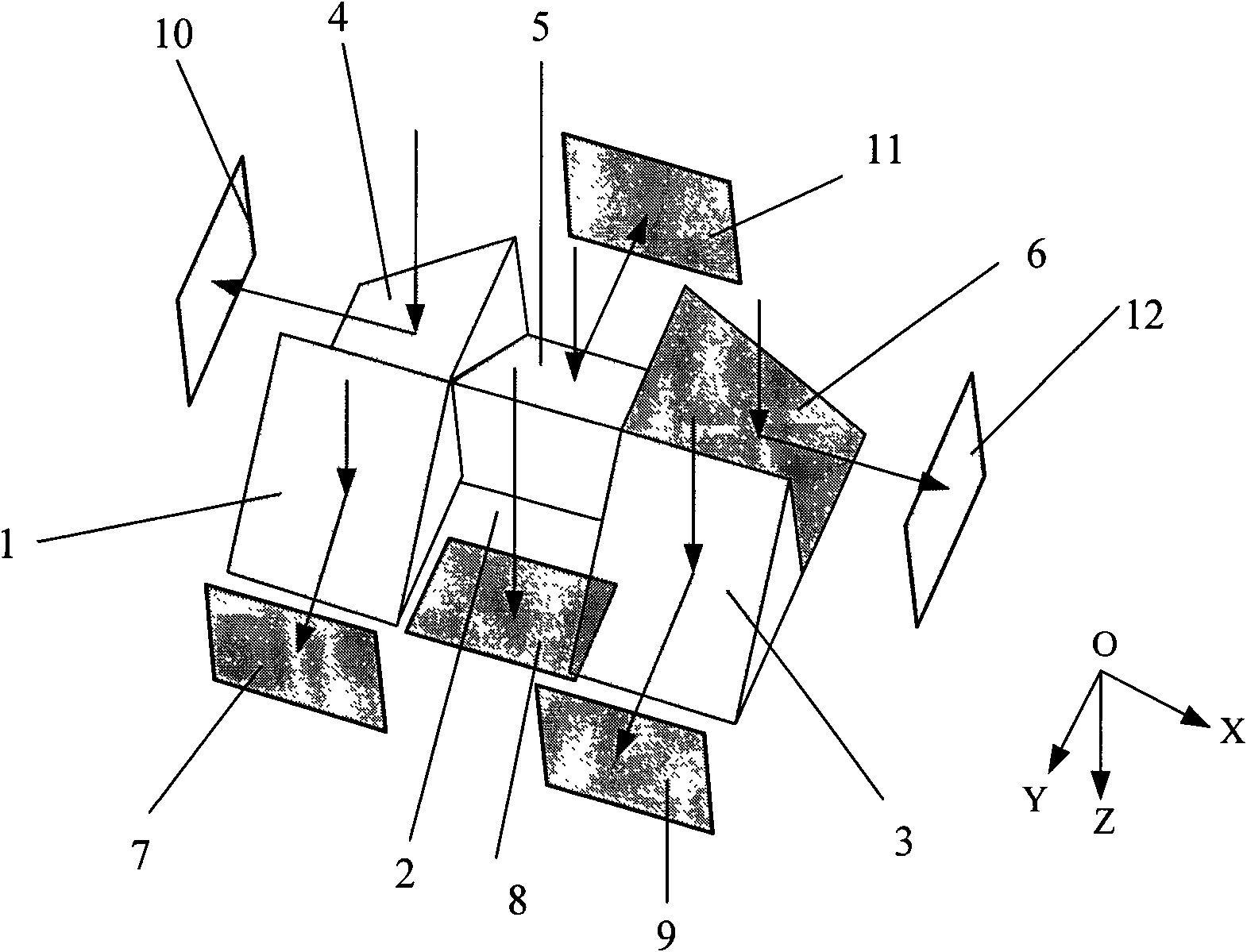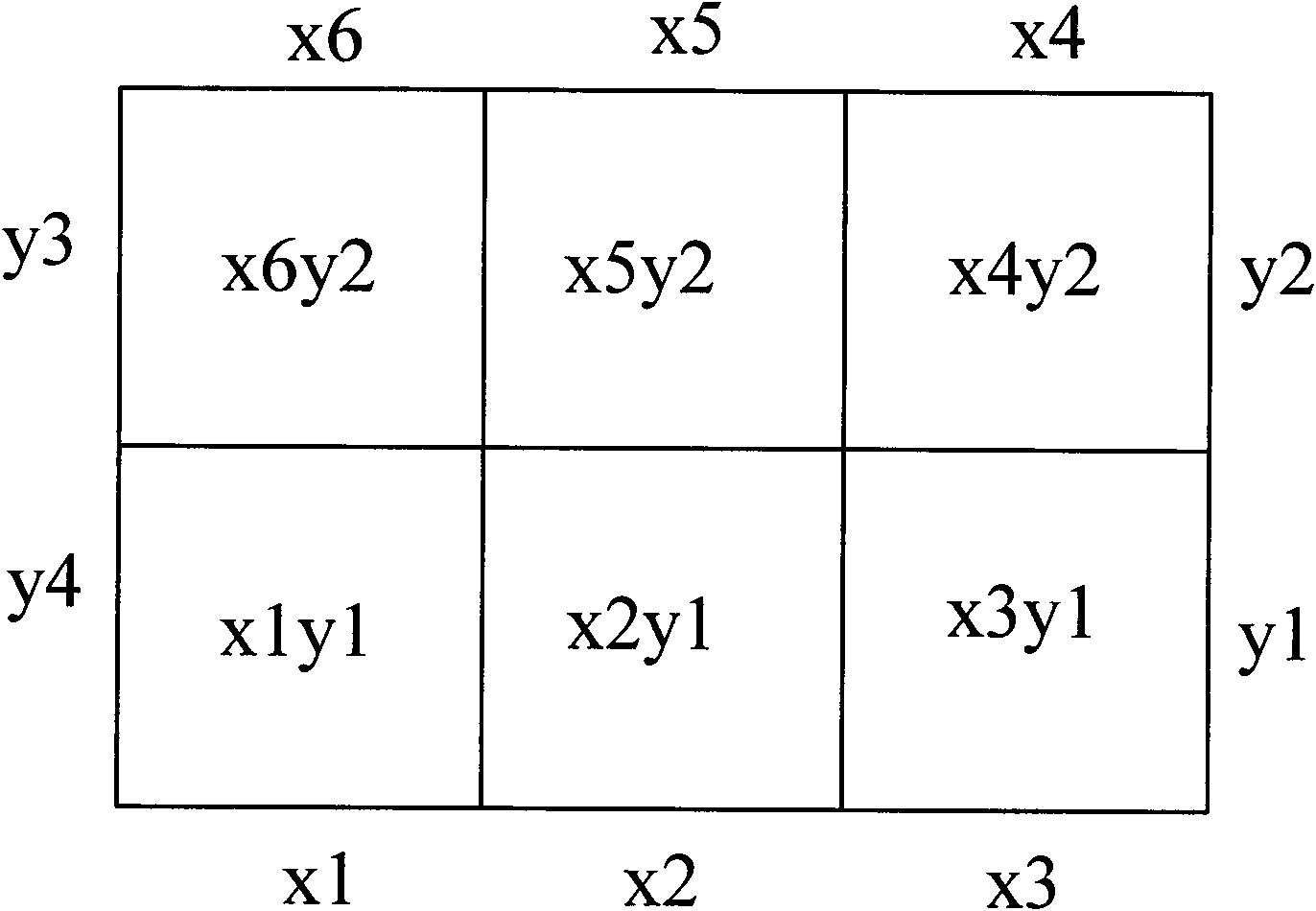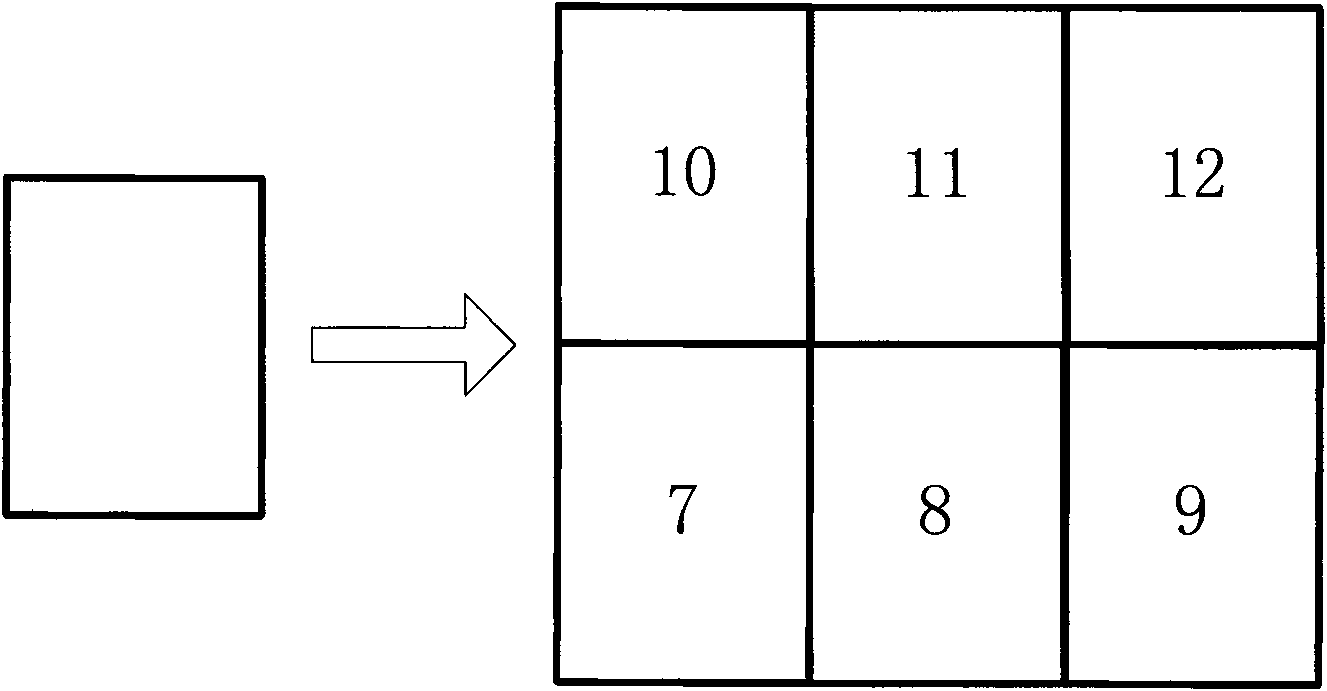Optical splicing method of large-array photoelectric device
A photoelectric device and optical splicing technology, which is applied in the field of aerospace optical remote sensors, can solve the problems of complex system structure, poor realizability, and large size, and achieve the effect of simple principle, easy operation, and increased size
- Summary
- Abstract
- Description
- Claims
- Application Information
AI Technical Summary
Problems solved by technology
Method used
Image
Examples
Embodiment Construction
[0030] like figure 1 As shown, it is a splicing schematic diagram for realizing the splicing of 6 small-area array devices into a 2×3 mode large-area array device. For the convenience of description, a space rectangular coordinate system should be established first. The coordinate system takes the light propagation direction as the positive direction of the Z-axis (here, the vertical downward direction is selected), the positive direction of the Y-axis when the vertical paper faces outward, and the positive direction of the X-axis by the right hand. The rule is determined, the coordinate origin is O.
[0031] Six identical detectors are placed in sequence in spatial positions. The planes where the first detector 7 , the third detector 9 and the fifth detector 11 are located are all parallel to the XOZ plane, and the first detector 7 and the third detector 9 are located on the plane. The plane intersects the positive half-axis of the Y-axis, the plane where the fifth detector ...
PUM
 Login to View More
Login to View More Abstract
Description
Claims
Application Information
 Login to View More
Login to View More - R&D
- Intellectual Property
- Life Sciences
- Materials
- Tech Scout
- Unparalleled Data Quality
- Higher Quality Content
- 60% Fewer Hallucinations
Browse by: Latest US Patents, China's latest patents, Technical Efficacy Thesaurus, Application Domain, Technology Topic, Popular Technical Reports.
© 2025 PatSnap. All rights reserved.Legal|Privacy policy|Modern Slavery Act Transparency Statement|Sitemap|About US| Contact US: help@patsnap.com



